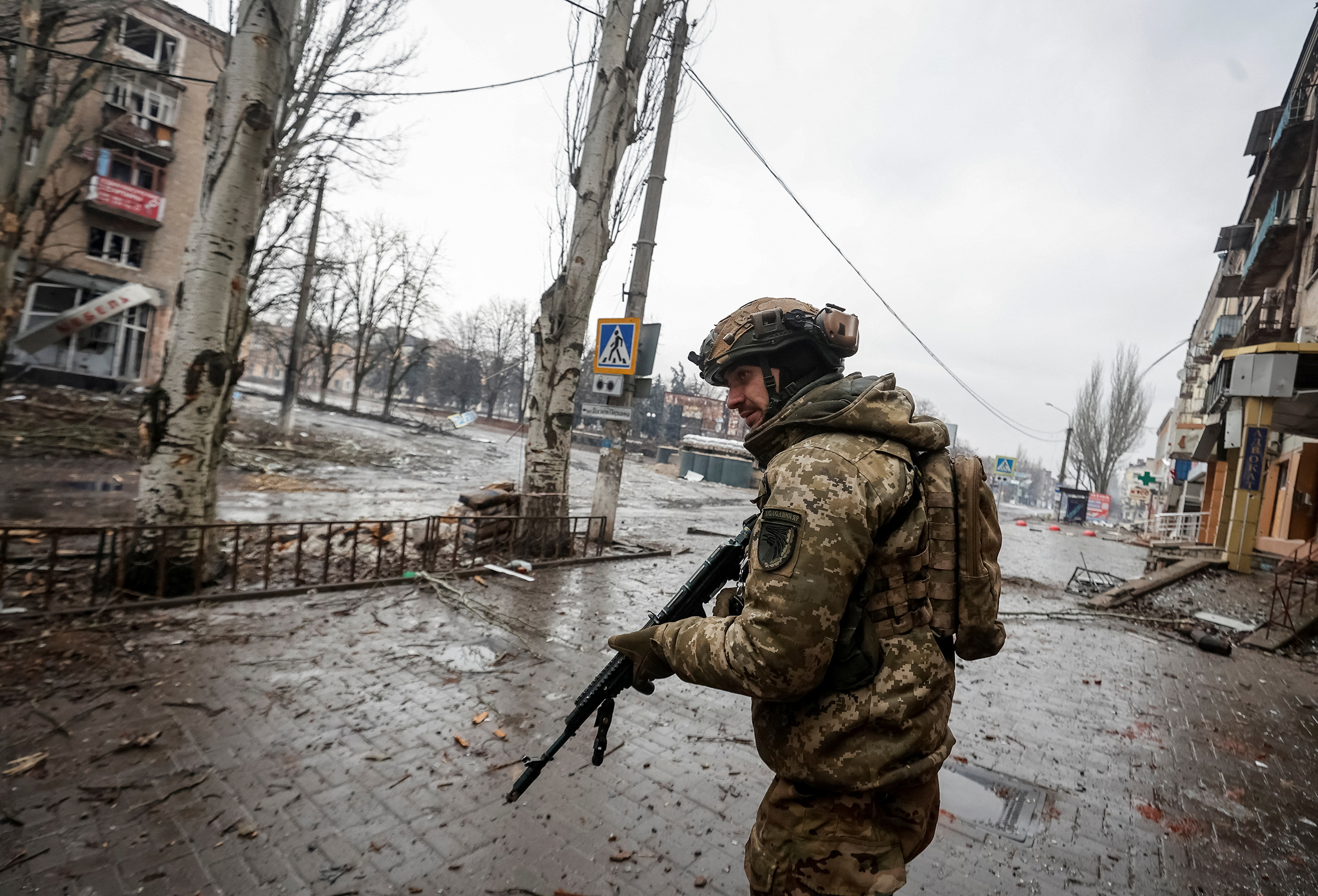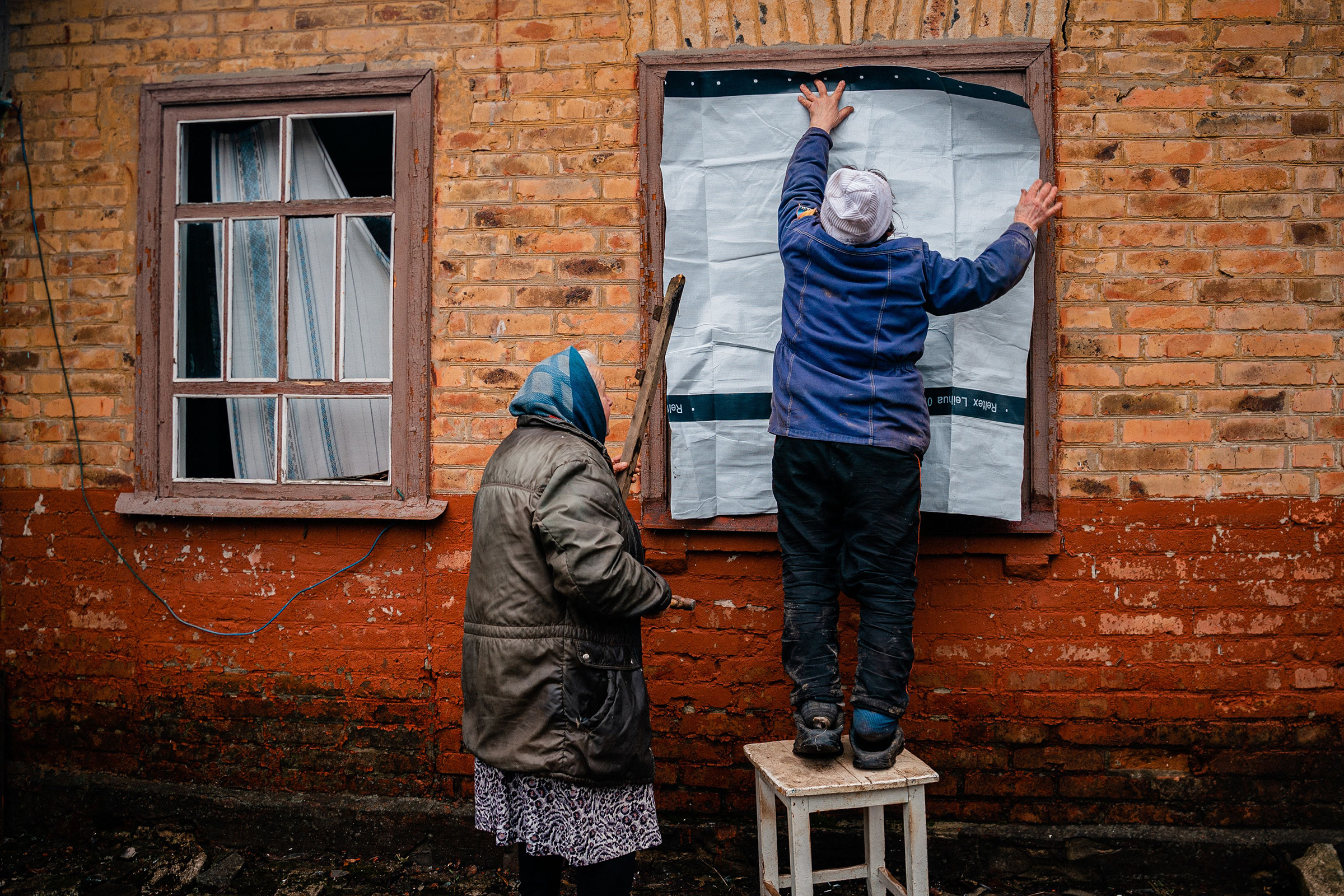
As the battle for Bakhmut further intensified over the last few days, Russian leaders have lobbed accusations that Ukrainian drones and saboteurs are now attacking Russia’s territory.
The battle is being called the “bloodiest” conflict of the war so far, with some estimates suggesting that Russian and Ukrainian forces are losing hundreds of troops daily. President Volodymyr Zelensky warned on Feb. 28 that the battle is still revving up, and that Russian forces had lost 800 troops in the last five days. “Russia does not count people at all, sending them to constantly storm our positions. The intensity of fighting is only increasing,” he said.
On Thursday, the Ukrainian military reported that its forces had fended off over 170 attacks on Bakhmut and other towns in the last day, up from Feb. 28, when it reported more than 60.
Meanwhile, Russia has accused Ukraine of extending the war into Crimea and Russia itself. Alexander Bogomaz, the governor of Russia’s Bryansk Oblast, said via Telegram that Ukrainian forces shot at civilians from a moving vehicle in Liubechane, a village in west Russia close to the Russian border with Ukraine, killing one person and injuring a 10-year-old.
The Russian defense ministry also said on March 1 that Russia had stopped a “massive” drone attack on Crimea, shooting down six unmanned aerial vehicles. That followed Kremlin accusations that Ukraine had flown drones into Russia on Monday and Tuesday, including one just 60 miles from Moscow.

Ukraine denied the attacks on Russian territory. Writing on Twitter on March 2, Presidential advisor Mykhailo Podolyak called the allegations about the shooting a “deliberate provocation,” writing that that the Russian Federation “wants to scare its people to justify the attack on another country & the growing poverty after the year of war.”
Analysts from the Institute for the Study of War said on Feb. 28 that Russia seems to be “escalating their promotion of false flag information operations to distract from their lack of tangible battlefield gains and slow down the provision of Western tanks and other aid.” But Ukrainian sources reported audible explosions on the night of March 1 in Crimea, while videos and photos appear to show evidence of attacks in parts of Russia, Meduza reported, suggesting there may be validity to Russia’s claims.
In Bakhmut, however, both sides have acknowledged the intensity of the battle. Russia has gradually made gains towards the city as of March 1, according to an analysis by the Institute for the Study of War. In a Feb. 27 statement on Telegram, Hanna Maliar, Ukraine’s deputy minister of defense, said Russia is increasing the intensity of its assaults: “During offensive operations, the enemy uses tactics of depletion and total destruction.”
The following day, Kyiv said it would consider withdrawing forces from Bakhmut, “if the costs outweigh the benefits,” Zelensky advisor Alexander Rodnyansky told CNN.
For now, however, Ukraine seems to be doubling down on the fight. Serhii Cherevatyi, a spokesperson for the Ukraine armed forces, told CNN on March 1 that Ukraine has not yet decided to withdraw. Ukraine is now sending reinforcements to the front line near the city, the New York Times reports.
Yevgeny Prigozhin, leader of the Wagner Group, a notorious Russian mercenary organization, acknowledged the determination of Ukrainian forces in a voice message on the app Telegram on Wednesday: “With all their strength, they’re trying to hold the city.”
More Must-Reads from TIME
- Donald Trump Is TIME's 2024 Person of the Year
- Why We Chose Trump as Person of the Year
- Is Intermittent Fasting Good or Bad for You?
- The 100 Must-Read Books of 2024
- The 20 Best Christmas TV Episodes
- Column: If Optimism Feels Ridiculous Now, Try Hope
- The Future of Climate Action Is Trade Policy
- Merle Bombardieri Is Helping People Make the Baby Decision
Contact us at letters@time.com